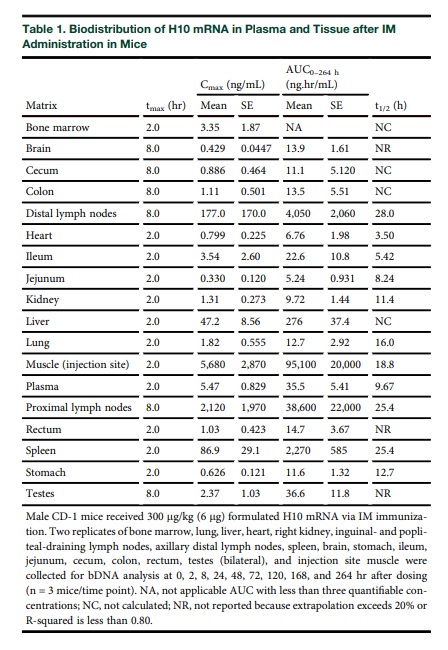
A lot of people have been asking me what we know about lipid nanoparticles, mRNA vaccines and the placenta. Can mRNA vaccines cross the placenta? Here’s what we know… 🧵
The main reason that people are suddenly interested in this is because they want to know if mRNA vaccines are safe during pregnancy. So let’s start with the evidence that addresses that directly…. 2/
First, rats given either the Pfizer or Modern mRNA vaccines during pregnancy gave birth to healthy pups. 3/
fda.gov/media/144246/d…
fda.gov/media/144434/d…
fda.gov/media/144246/d…
fda.gov/media/144434/d…
Second, in the USA more than 44,000 pregnant people have so far received an mRNA vaccine. Passive surveillance of these people has revealed no safety signal, and the same is true for active surveillance of 1,815 pregnant people through V-safe. 4/
cdc.gov/vaccines/acip/…
cdc.gov/vaccines/acip/…

And the Yellow Card data from the UK shows something similar for the Pfizer vaccine (since we are not yet using Moderna). 5/
gov.uk/government/pub…
gov.uk/government/pub…
So the data we have so far tells us that mRNA vaccines are safe during pregnancy. But you asked if lipid nanoparticles can cross the placenta. Well, can they? 6/
Because we can’t look at the placenta of a person immediately following vaccination (they still need it!) we use evidence from animal models to tackle this question. 7/
The first question to answer is: do mRNAs in lipid nanoparticles even leave the injection site? We know from experiments in mice that they do. This paper used a luciferase mRNA cargo and you can see the livers lighting up 1-4 days post injection. 8/
ncbi.nlm.nih.gov/pmc/articles/P…
ncbi.nlm.nih.gov/pmc/articles/P…

And here’s a paper from Moderna, looking at an mRNA vaccine against flu. They looked specifically at individual organs, only seeing significant amounts of mRNA at the injection site, draining lymph nodes, spleen and liver. 9/
cell.com/action/showPdf…
cell.com/action/showPdf…

But what about the placenta? Well, this study aimed to *stop* a harmful drug given to pregnant rats from getting to the fetus. And it worked! So in this study, lipid nanoparticles do not cross the placenta. 10/
sciencedirect.com/science/articl…
sciencedirect.com/science/articl…

And here is a study which used gadolinium as a contrast agent for MRI in pregnant rats. When the gadolinium was contained in lipid nanoparticles, they could image the placenta well, but the agent did not *cross* the placenta. 11/
sciencedirect.com/science/articl…
sciencedirect.com/science/articl…
(These studies, by the way, used much bigger doses of their drugs than anyone will get when they are vaccinated. And remember, the mRNA vaccines aren't that stable either!) 12/
But actually lipid nanoparticles are pretty clever, and although they don’t usually cross the placenta, if we *want to* we can engineer them to get into placental cells. This could be useful if we ever want to target drugs specifically *at* the placenta. 13/
So, lipid nanoparticles *do* leave the site of injection, but they only really appear in the lymph nodes, spleen and liver. 15/
They don't cross the placenta (unless we specifically engineer them to) and we can harness this to give drugs to pregnant animals – and maybe someday people – without them getting into the baby. 16/
And - bonus material for those who are thinking instead about breastfeeding! - they also don't get into breast milk. 17/17
medrxiv.org/content/10.110…
medrxiv.org/content/10.110…
• • •
Missing some Tweet in this thread? You can try to
force a refresh


